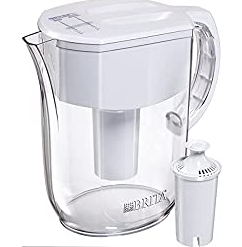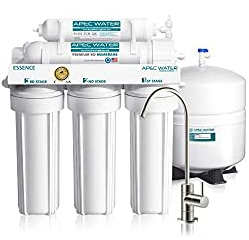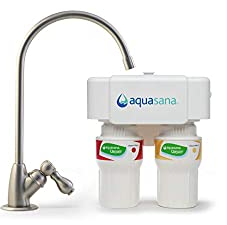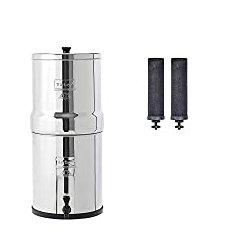As a kid, I never thought about a water filter. Yet after being diagnosed with autoimmune diseases, I wouldn’t drink any water without one. How do I choose the right water filter? In this post, you’ll learn about drinking water and my journey of not submitting to bottled water. Plus you’ll understand what option is best for you and your family whether you live in the city or a rural area.
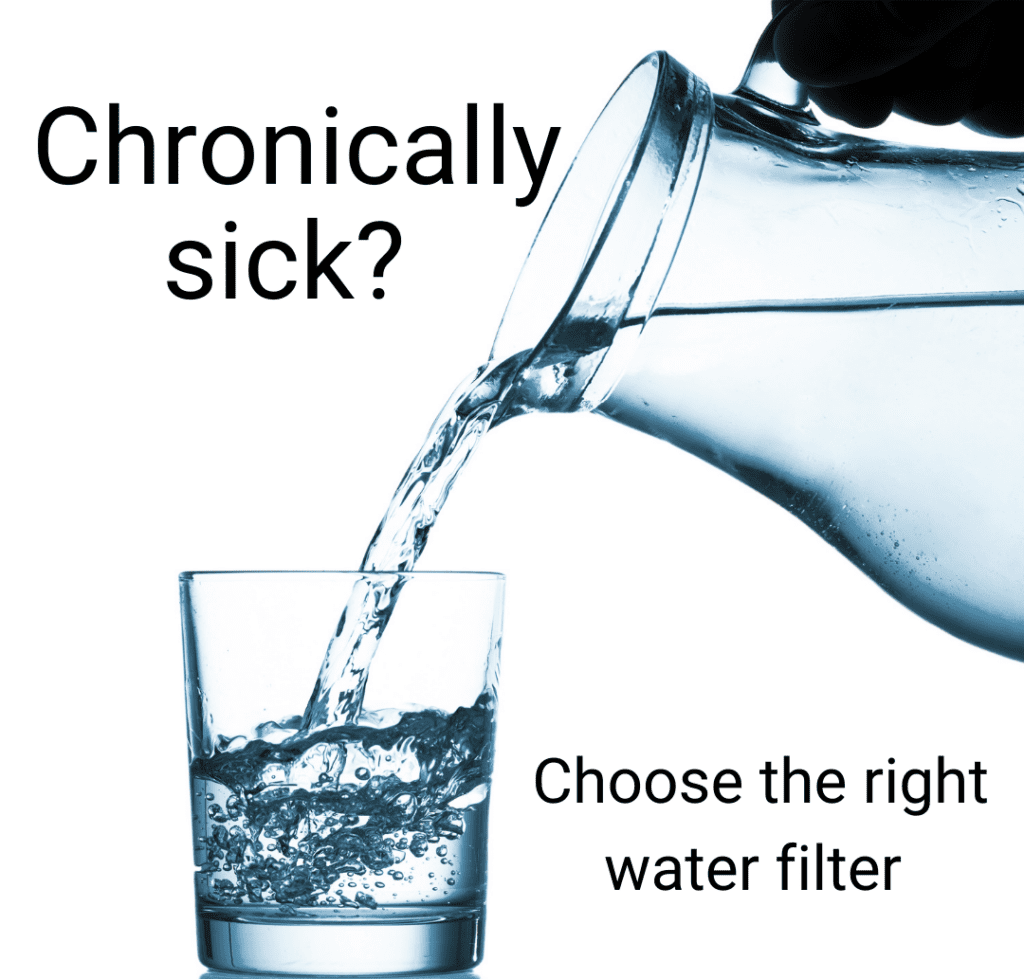
Water has a lot to do with your health water is life! If you’re not getting healthy clean water, you might be setting yourself up for autoimmune disease and other chronic health issues. If there is one physical gift that keeps on giving, it would be clean drinking water. It sounds kind of boring; after all, water is thought to be a commodity. However, pure clean water is not necessarily everywhere. Whether you live in the city, the countryside, or overseas, clean nutritious water is hard to come by. In our recent move from city water to well water, drinking water became my #1 priority and it completely stressed me out. This situation is literally and physically taking a challenge and creating goodness from it.
Water and your health, does it matter?
Did you know that drinking water can affect your health? I’m not just talking about water-born bacteria like E. coli or Giardia; many other factors affect water that can weaken our bones, disrupt our digestive systems, and even hurt our heart health. If you think about it there aren’t many choices for healthy, balanced water; treated water is full of chemicals, bottled water can leach estrogens or containments, distilled water can rob you of essential minerals, and well water can have harmful levels of iron, arsenic, and lead to name a few. Talk about stress! This was where I was when we moved.

Water and My Story
Water and I go way back. I now take it seriously and there are many reasons why I do. In college, drinking a lot of water helped me (tremendously) lose weight. Secondly, during my pregnancies, I got severely dehydrated due to HG which led me to get an IV multiple times. Thirdly, water is all I drink.
I grew up on city water, unfiltered. I drank it straight from the tap. In college, I drank it from the tap or drinking fountain. It wasn’t until 2007 that we decided to get a water filter. Before that time, I was diagnosed with an autoimmune disorder in my liver, which then cascaded into other issues. Could it be that most diseases come from our water?
Nowadays, my digestive system is a sensitive one, so I need to be careful what I put into my body or my body will flare up. Not to mention, dehydration comes on pretty quickly, and water is the only element that keeps me stable. I highly recommend you get your water tested. You can call your township or city and ask them how to do it. There are kits online, but I’d go the local route.
So what are we to drink?
As you know, our bodies can’t survive more than three days without water. Sure you can drink coffee, soda, juice, energy drinks, and such, but those can be toxic to your system and cause all sorts of other health problems. And yes, water detoxifies your body, gives you energy, helps you feel good (better mood), and so much more! But what are we to drink?
Many would answer this question with bottled water. Bottled water first came out in 1767 and has gotten increasingly popular ever since! With recent worldly events, bottled water has been life-saving. I drink bottled water occasionally and am extremely grateful to have it on hand. But not all bottled water is the same. At the store you’ll see many options for bottled water, if you’re a serious water drinker it can be overwhelming. Let’s look at the pros and cons of bottled water.
PROS:
- It’s convenient
- Works in a pinch
- There are many options to suit your needs
CONS:
- Can be expensive
- Different pH levels
- Chemicals and estrogens leaking into water from the plastic
- Not 100% sure what the water source is
- Could contain added ingredients
- Hurts the environment if you don’t recycle
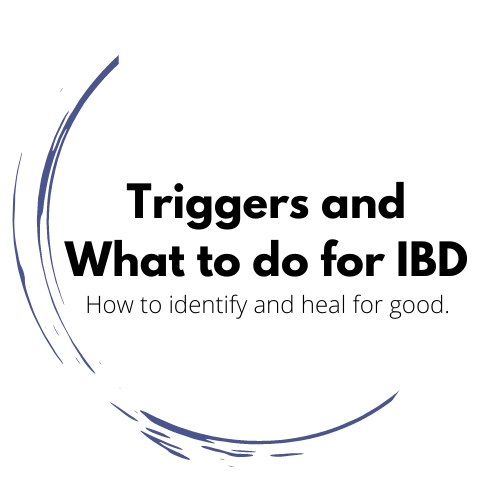

Water filter options besides bottled water
Some would argue that filtered water by a home water filter is the way to go. Yet, others are strictly from the tap. This is all personal preference, but the one that gives me confidence in what I’m drinking is from a home filtration system. What does this mean?
A home filtration system can mean a few things. It can mean refrigerator water, a water filter pitcher, an RO system, an under-the-sink water filter, or a countertop water filter. Let’s briefly take a deeper look into some of these options.
Refrigerator filter
Some people thoroughly enjoy their refrigerator water filters. The water is instantly cold and easy to access. Just remember to change the filter.
Water filter pitcher
Another route is the filtered water pitcher. The water pitchers are popular and do a great job. If you don’t drink a lot of water every day I’d suggest the water pitcher. You can put it in the frig or keep it on the counter. This option is better than buying plastic jugs of water.
Reverse Osmosis
If you want 100% pure water, you’ll want to check out the RO System. The Reverse Osmosis System completely takes out all chemicals, bacteria, minerals, and good minerals from the water, so you are only left with H2O. This water tastes amazing! However, RO water tends to be more acidic, around 5.5 pH to 6.0 pH. This is because it takes out those minerals that balance pH. There are mineral filters that connect to the RO system to help put minerals back into the water, but I’m not sure about their effectiveness…the reviews are not consistent. Not to be a wet blanket, but I’ve heard the pH filters can be fickle from going from one extreme to the other.
More about water pH
And what’s up with water pH? I had no idea the pH level of water was different, but it is! Some water is alkaline and others are acidic. Ideally, you want to be right in the middle of it all. If water is too acidic it can eventually lead to health problems. The same goes true with water that is too alkaline. In our new home, I bought a ph tester and had chemistry class on our kitchen counter. It was fun testing eight different glasses of water. What I found was that some bottled water was acidic! Yet with the three different types of water filters, I had on hand: RO System, under sink Aquasuana, and countertop Berkey; the RO was acidic, Aquasana and Berkey were alkaline. I also tested our water softener water, well water, and other bottled water.
More water filter systems
Under-the-sink filtration system
Yet, another route is to use an under-the-sink filtration system. We used this water filter system when we lived in the city, and we loved it! New filters were sent to us every 6 months, so we didn’t have to remember to get them. It’s super convenient and easy to use. This just gives you a little more peace of mind that your water is safe. We have been using Aquasana since 2007.
Countertop filtered water
Countertop filtered water is yet another option for filtered drinking water. This water filter is gravity-fed using carbon filters. It’s easy to use, looks cool, and can even filter pond water ready for you to drink! This water filter is a rock star, it filters all the bad stuff out but keeps the essential minerals our bodies need like calcium, magnesium, and potassium. The pH level is where it should be, in the 7.0 range. If you drink a lot of water every day and don’t like cold water, I would highly recommend the Berkey Water Filter System. You just have to remember to fill it.



So which one do I use on well water?
I asked this exact question when I moved into our country home and there wasn’t an easy answer. People around us all did different things. Bottled water was one, refrigerator water another (but I don’t like cold water), and water pitcher. It took me hours to figure out what one would be best for me. As I said before, water is the top beverage I consume each day. So if I’m drinking water with a lot of chemicals in it, then my body is getting a lot of chemicals. And with the health issues I have, my liver doesn’t need to work any harder than it needs to.
We have a water softener in our home, and I do not like drinking softened water. It’s a water-weight thing if you know what I mean. Soft water makes me bloated and I’m not a fan of excess sodium adding up in the body. So after many trials of different kinds of water filter systems, with softened water, without softened water, not to mention the different types of bottled water I tried, we finalized on a direct line from the well (non-softened water) to our drinking fixture on our kitchen sink; the drinking spigot goes through an under-the-sink water filter system, and then we filter it again with the Berkey. It’s a little complicated, I agree, but our well water is getting filtered twice yet leaving in those essential minerals our bodies need. I am a very happy camper and am at peace with our drinking water. And I feel great!
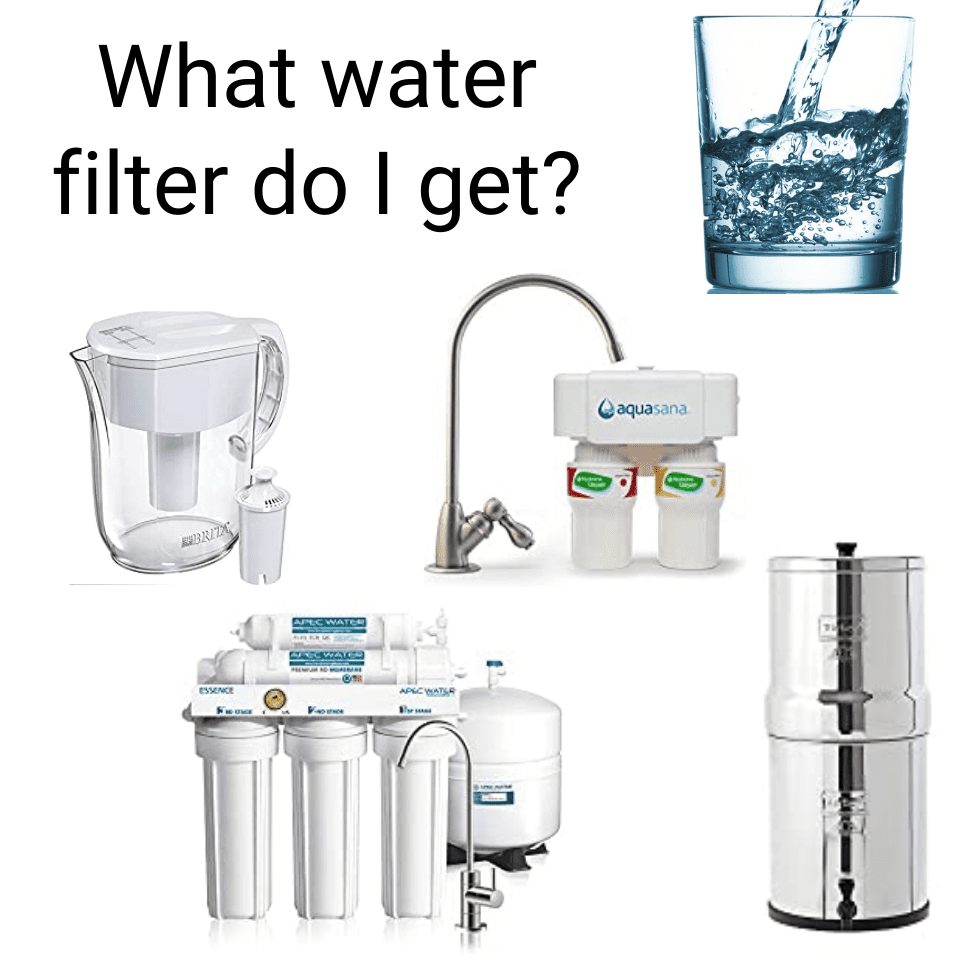

Water filter conclusion
Water makes a 100% difference in your health, hormones, mind, and inflammation. Do what is best for you, your body, and your mental well-being. Take your water seriously! My recommendations include:
#1 Get your water tested for containments, metals, and bacteria.
#2 Understand the pH level of your drinking water.
#3 Invest in a drinking water filter for you and your family.
For city water, the Aquasana under-the-sink unit or a Berkey do the trick.
If you have well water, a combo of Aquasana under the sink and a Berkey works well.
Out camping? I recommend a Berkey.
Campus water isn’t the best… a Berkey or a water filter pitcher works well.
All in all, the Berkey is the way to go.
Before you go, check out these other great posts:
Quick Healthy Meals On a Budget? 5 Criteria
Food Combining Does What? Manage stomach acid now!
How to Get Motivated: 4 Critical Tips to Start Anything
13 Natural Stress Relief Products for Anyone!


By CT Copyright © 2021 Simplify Firefly. All Rights Reserved.
